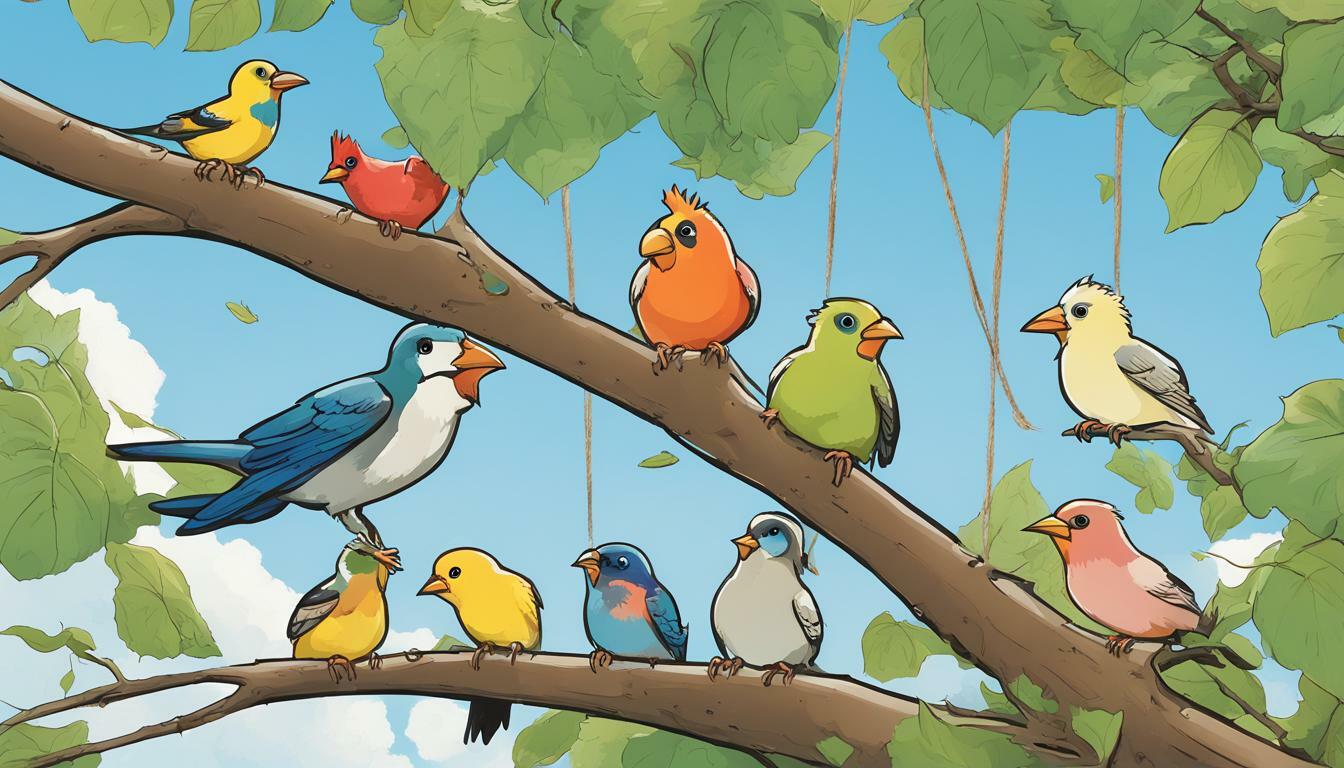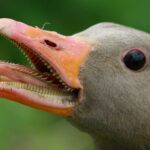As a bird enthusiast, have you ever wondered how birds remember where feeders are? Their incredible memory abilities play a crucial role in their feeding behavior. In this article, we will explore the science behind avian memory and how it influences their feeding habits.
Key Takeaways:
- Birds have remarkable recall abilities and impressive memory capabilities.
- Their spatial memory and overall memory retention play a significant role in locating feeders.
- Understanding bird foraging habits and their ability to find feeders involves exploring the relationship between memory and feeding behavior.
Avian Memory: The Remarkable Recall Abilities of Birds
When it comes to memory, birds are no slouches. Despite having much smaller brains than mammals, they possess impressive memory capabilities, especially when it comes to spatial memory.
Spatial memory is the ability to remember the location of objects and landmarks in the environment. Birds use this type of memory to navigate, find food, and avoid predators. Studies have shown that some birds, such as the Clark’s nutcracker, can remember the location of thousands of individual caches of food over several months.
But spatial memory isn’t the only type of memory that birds possess. They also have excellent memory retention, allowing them to remember information over long periods of time. For example, some birds can remember the songs of other birds for years, even if they have only heard them once.
So how does this impressive memory function influence birds’ ability to locate feeders? Well, it turns out that birds use their spatial memory to remember the location of feeders and other food sources. They may also use their memory retention to remember which feeders have been consistently reliable in the past.
Overall, birds’ remarkable recall abilities are a crucial part of their feeding behavior. By using their impressive memory capabilities, they can locate feeders and other food sources with ease.
Bird Foraging Habits and Feeders: Understanding the Connection
As you observe birds visiting your backyard feeder, you may wonder why some species come more frequently than others. Understanding bird feeding behavior and their foraging habits is essential to appreciate why particular birds favor certain feeder types or locations.
Various factors influence bird foraging habits, including the availability of natural food sources, the type of feeder and food provided, and the feeder’s location. Many birds prefer feeders located near trees or other perching areas to retreat to after feeding. Additionally, birds tend to favor feeders that are placed in open areas, where they can have a clear view of their surroundings and potential predators.
Birds’ memory plays a vital role in their ability to locate feeders. As they visit feeders repeatedly, they develop spatial memory, which helps them remember where the feeder is located and the best routes to access it. They also memorize the time of day when the food is refilled, returning to the feeder at that time every day.
Moreover, birds’ feeding behavior is often influenced by their pecking order, with more dominant birds typically feeding first while the less dominant birds wait their turn. As a result, providing multiple feeders can attract a greater variety of birds and reduce competition for food.
Understanding bird foraging habits and how they utilize their impressive memory to locate feeders helps bird enthusiasts create an inviting and thriving backyard bird environment.
Unveiling the Science Behind Birds’ Spatial Memory
Birds’ memory, especially their spatial memory, is remarkable. Research shows that birds possess excellent memory capabilities and can recall locations in great detail. Through these abilities, they can navigate their environment with tremendous precision. Furthermore, they can remember the location of feeders and utilize this memory to locate food.
Studies have shown that birds have highly developed hippocampal areas, which play a vital role in spatial memory. This brain region is responsible for forming and recalling memories, and it appears to be larger in birds that rely heavily on spatial memory. For example, bird species that store food for future consumption have larger hippocampi than those that do not.
Research has also shown that birds can recall the location of hidden food sources for up to nine months, proving that their spatial memory is long-lasting. Additionally, some evidence suggests that birds may even have a photographic memory, allowing them to remember detailed features of their environment.
Overall, birds’ recall abilities demonstrate their impressive memory capabilities, particularly in regards to spatial memory. Their memory plays a crucial role in their ability to locate feeders and find food sources.
Bird Feeding Behavior and Avian Memory: A Recap
After exploring the fascinating topic of whether birds remember where feeders are, we can conclude that these feathered creatures possess remarkable memory capabilities. Their ability to remember the location of feeders is influenced by their foraging habits and memory function.
As we learned, birds’ spatial memory and overall memory retention play a significant role in locating feeders. Studies have shown that birds can remember feeder locations for months, even after they have been removed. This impressive memory function allows birds to optimize their feeding behavior, conserve energy, and avoid predators.
Understanding bird feeding behavior and avian memory is essential for those who enjoy bird watching and feeding. By placing feeders in optimal locations and providing a consistent food supply, you can attract a variety of bird species to your yard and help sustain their wellbeing.
In conclusion, birds have remarkable memory abilities and utilize this function to locate feeders. By providing birds with a reliable food supply, you can observe their incredible feeding behavior and make a positive impact on their lives.
Can Birds Pee and Remember Where Feeders Are at the Same Time?
Birds’ urinary habits have long been a topic of curiosity among bird watchers. While birds do not urinate in the same way as mammals, they do excrete nitrogenous waste in the form of a concentrated white paste called uric acid. As for their ability to remember feeder locations, studies suggest that several bird species have excellent spatial memory, allowing them to easily recall and revisit reliable food sources.
FAQ
Q: Do birds have long-term memory?
A: Yes, birds have impressive long-term memory capabilities, including the ability to remember feeder locations.
Q: How do birds remember where feeders are?
A: Birds utilize their excellent spatial memory to remember feeder locations. They create mental maps of their surroundings and use visual cues to locate feeders.
Q: Can birds remember multiple feeder locations?
A: Yes, birds have the ability to remember multiple feeder locations. They can remember the specific locations of various feeders and revisit them regularly.
Q: How long can birds remember where feeders are?
A: The duration of birds’ memory of feeder locations can vary, but they can remember feeders for extended periods, sometimes even years.
Q: Can birds remember feeder locations year after year?
A: Yes, birds have shown the ability to remember feeder locations year after year. This indicates a long-lasting memory and the importance of feeders in their foraging behavior.
Q: Does the type of bird affect their memory of feeder locations?
A: Different bird species may have varying memory capabilities, but most birds exhibit impressive memory and can remember feeder locations regardless of their species.
Q: How can I enhance birds’ memory of my feeder location?
A: You can help birds remember your feeder location by consistently providing a reliable food source, maintaining a consistent feeder placement, and using visual cues or distinct landmarks to aid their memory.
Q: Can birds relearn feeder locations if they are moved?
A: Birds have the ability to relearn feeder locations if they are moved. However, it may take them some time to adjust and find the new feeder location.











